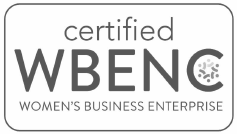Hiring the right PR agency can be a time-intensive and overwhelming process. With numerous agencies to choose from and each having their own niche within the marketplace, it is critical to choose the agency with not just the right services but a compatible culture and work style. Whether putting out a RFP or reaching out to select agencies, be sure to ask these three key questions before signing a contract:
Who will be on my team?
In some instances, the pitch team differs from the team who will be handling your account on a day-to-day basis. That is to say that the person making the sale may not be the person completing the work. Additionally, the team may consist of folks with various levels and areas of expertise who will be performing different functions. Be sure to ask who the team members are, what each is responsible for and who will serve as your primary point of contact. When a crisis strikes, you need know who the ‘go to’ is and the best way to reach them.
To ensure a comfort level with those who will me promoting your organization, ask how the team was selected. It’s important to know that a team’s skills and experience align with the needs of your organization. After all, PR/marketing is an important investment and your team needs to ‘get’ you as much as you ‘get’ them.
How will the agency interact with my company?
Despite the abundance of free technology tools available to aid in the communication process, some situations are best suited to face-to-face meetings. Further, different people have different communication preferences. For example, if you run a small business in California and have a strong preference for face-to-face meetings, you are not well-suited to work with an agency in New York who conducts all meetings virtually. Perhaps you are someone with email fatigue, a visual learner or a conversationalist. Regardless, you need to find an agency who can tailor their communication to your team to suit these communication preferences.
Beyond the communication medium, ask how often you can expect to hear from the agency and how often and through what channel(s) results will be communicated. Effective communication requires a two way dialogue so be sure to inquire about how you can best deliver information to the agency and share any questions or concerns. The stronger the communication between both parties, the better the results.
How will we measure results?
Universal success metrics do not exist. There. I said it. Campaign metrics – be they for public relations, marketing, social media marketing, inbound marketing, email marketing or a website – need to be tailored to the objectives of the campaign. If you are tasking an agency with generating more foot traffic for your restaurant, you need a mechanism for identifying how patrons came to visit your establishment. If you are seeking to increase donations for your nonprofit, you need to track where the donations are coming from and to set previous year’s donations as a baseline for measuring the success of the new campaign. When it comes to measurement, one size doesn’t fit all.
Beyond defining the success metrics for your PR/marketing campaign, ask the agency how often the program will be evaluated. While marketing is not an overnight success and a strong foundation needs to be laid, waiting too long to evaluate results can eliminate the opportunity to make important refinements to the campaign. For example, if a multi-channel campaign is generating a greater return from its social media marketing components that its tradeshow marketing, the agency needs to be prepared to examine the results and identify possible tools and techniques for improving the situation. It may be that the campaign would benefit from allocating more resources to what is working well rather than allocating time and money to a less successful communication channel or tactic.
Just as quantifying success is not one size fits all, every agency is not the right for every business or nonprofit. Marketing/PR is an investment that can positively impact an organization’s bottom line when the strategies, tactics and cultures of the client and the agency are well-aligned. Before jumping into a new agency relationship, take the time to complete your due diligence and find the agency that is the best fit for your cause or business.


